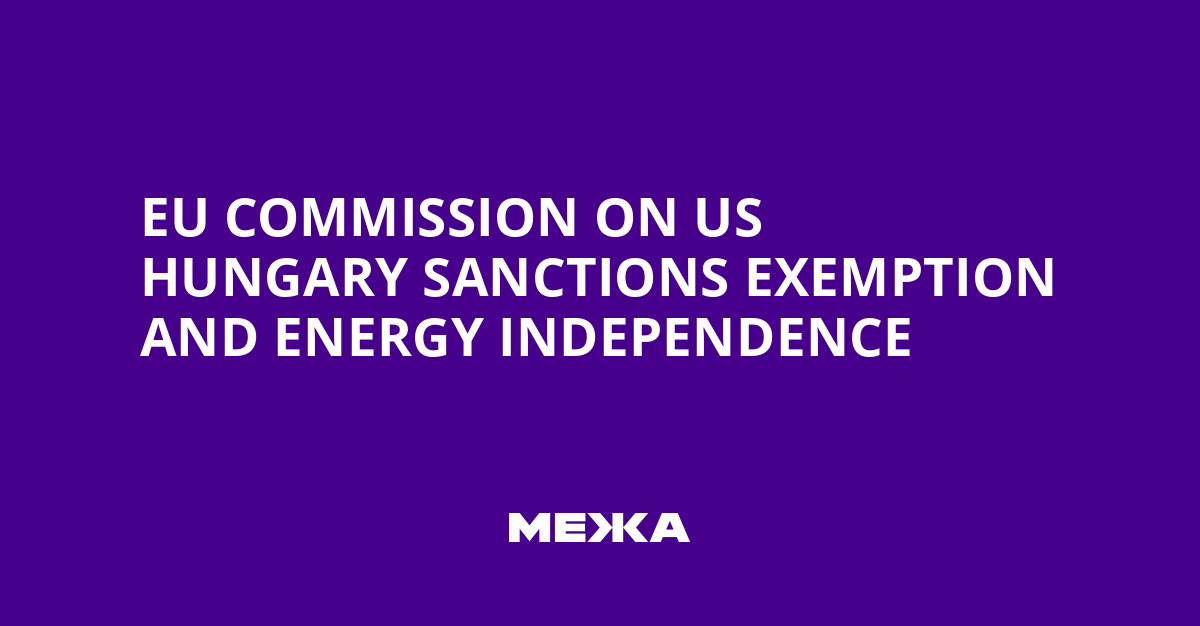The European Commission will not issue official comments regarding the U.S. decision to exempt Hungary from sanctions on Russian energy supplies. In recent years, the EU has actively reduced its dependence on imports of Russian oil and gas, as evidenced by data and analyses from the European Community for 2023–2024.
The EC noted that it had no specific remarks on this matter, as it concerns the application of U.S. sanctions. At the same time, the EU continues to support reductions in imports from Russia and is considering ways to further diversify energy sources.
“full and unrestricted exemption from sanctions on oil and gas”
– Peter Szijjarto
According to official data, the Commission proposed a gradual reduction of Russian gas and oil imports to the EU by the end of 2027. In terms of dynamics, gas supplies from Russia – with both liquefied and pipeline forms – fell from 45% in 2021 to 19% in 2024, with a further reduction expected to around 13% in 2025 after the transit through Ukraine ends.
As for oil, imports of Russian crude fell from about 27% at the beginning of 2022 to around 3% in 2024.
Under the 2022 sanctions package, the European Commission introduced a ban on imports of Russian oil, with the exception of Hungary and Slovakia, which for security reasons are currently allowed to import Russian crude oil.
EU Energy Steps and Future Prospects
Since the start of Russia’s full-scale invasion, the EU has significantly reduced its dependence on Russia and energy imports under the REPowerEU program, which began operating in 2022. A representative of the EC stressed that these efforts will continue toward a full reorientation of supply.
In light of recent events, on November 7 the U.S. president Donald Trump met with Hungarian Prime Minister Viktor Orban at the White House. According to the head of Hungary’s Ministry of Foreign Affairs, the main result was the announced possibility of full and unlimited exemption of Hungary from sanctions on oil and gas; Orban also expressed assurances regarding the country’s exclusion from the sanctions regime on Russian energy supplies.
Against the backdrop of Western partners’ sanctions steps, it is worth noting that on October 15 the United Kingdom expanded its sanctions list against Russia, including Rosneft and Lukoil, and on October 22 the U.S. Department of the Treasury imposed new restrictions on these companies and their subsidiaries – the list numbers over 34 companies.
Overall, in recent months the U.S. and its allies continue to intensify coordination on the geopolitical stage: various participants play roles in negotiations, among whom Kirill Dmitriev, head of the Russian Direct Investment Fund, a figure within Russia’s financial and investment channels, has become part of the Kremlin’s negotiation platforms.
